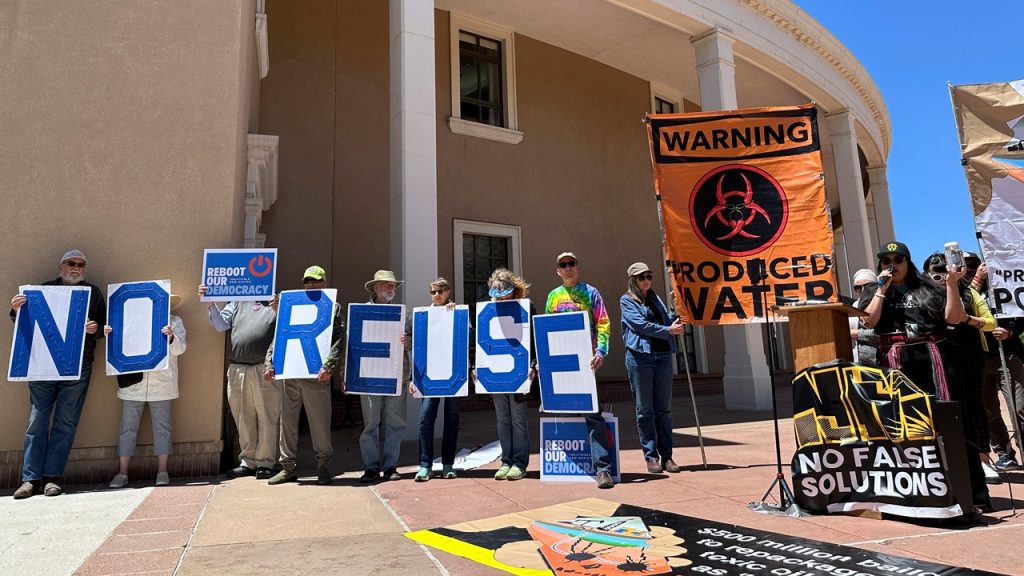Environmental officials in New Mexico are taking steps to regulate the treatment and reuse of fracking water in response to scarce water supplies and challenges faced by the fossil fuel industry. The state is prohibiting the release of produced water from oil and gas production, but is allowing for pilot projects to explore potential treatment technologies. The proposed regulations are generating public protests, with concerns about potential contaminants used during drilling. Both environmental groups and industry stakeholders have voiced their opinions on the regulations, with some arguing that the rules do not provide specific water quality standards needed for effective treatment projects.
Several environmental groups are pushing for stricter definitions that limit the reuse of treated water in various applications such as agriculture and potable water. The public is concerned about the possibility of produced water infiltrating and polluting groundwater, despite the rules stating otherwise. New Mexico Governor Michelle Lujan Grisham has proposed a plan for the state to buy and sell treated water from oil and gas drilling byproducts to provide a new source of water. Related legislation was stalled in the Legislature in February, but the governor remains committed to the idea.
Protests against the oil wastewater rule have taken place, with concerns raised over potential pollution outside of the oil field. The environment rights group Pueblo Action Alliance and other protesters have expressed opposition to the reuse of toxic oil and gas wastewater. Expert testimony from the New Mexico Oil and Gas Association highlights the increasing competition for water resources in the state, exacerbated by growing water demands from the oil industry for fracking. With projections of reduced water availability in the coming years, there are challenges across various sectors, including municipal, agricultural, and industrial planning.
The association’s testimony also points out the increasing volume of produced water generated by oil companies as drilling activity rises, leading to challenges in disposal. Concerns about earthquakes linked to high-pressure injection wells have further complicated the issue. According to industry experts, the oil industry generates four to five barrels of wastewater for every barrel of oil produced. The state’s water resources are under strain, and it is crucial to develop effective regulations that balance the need for water in various sectors while ensuring environmental protection. Stakeholders, including environmental groups, industry representatives, and state officials, are engaged in discussions to address these complex challenges and find sustainable solutions for water management in New Mexico.


